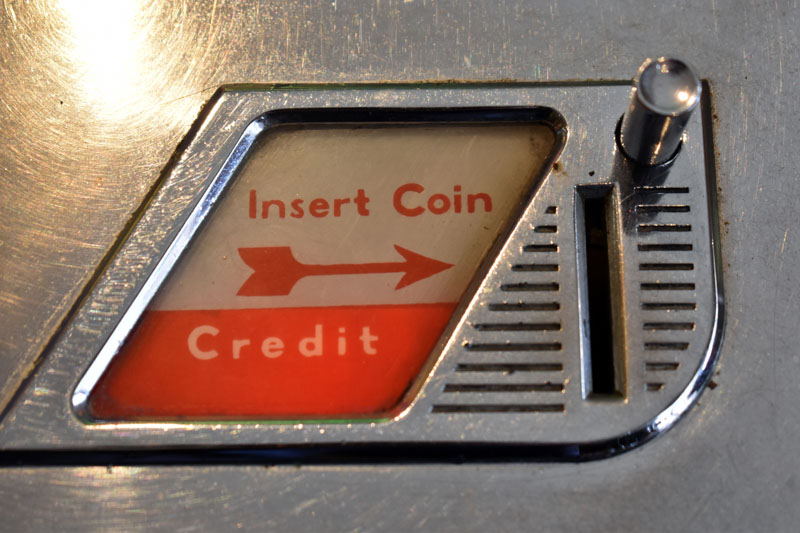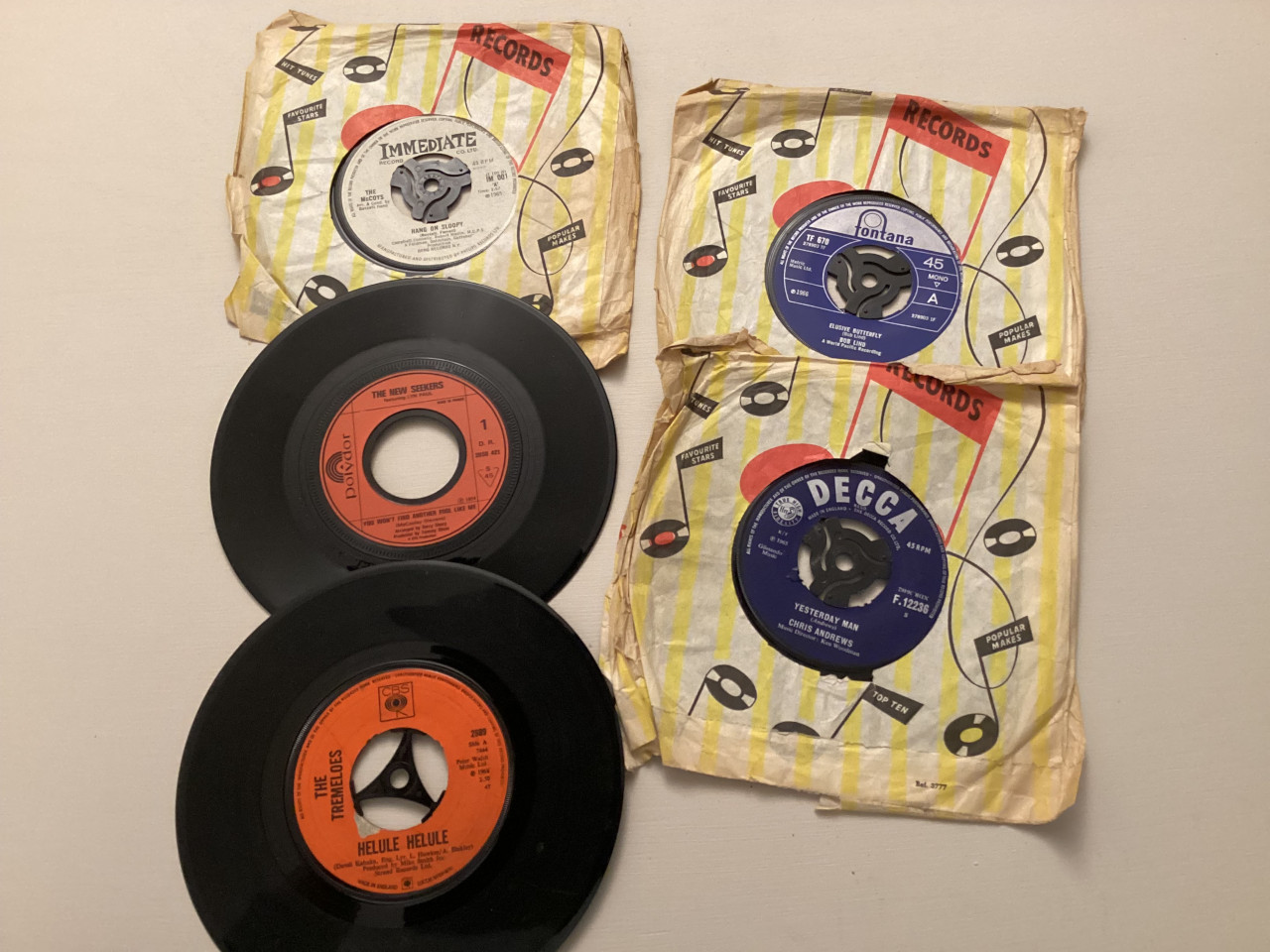This pages provides historical background to the project and links to relevant memories collected during the project.
- The first British jukebox
- Ditchburn Equipment Ltd
- Blackpool memories
- Lytham St. Annes memories
- Morecambe/Lancaster memories
- Memories from elsewhere
The first British jukebox
Jack Hylton (1892-1965) was an English pianist, composer, band leader and impresario. He initially rose to prominence in the British dance band era, but after World War II he began to focus on theatrical productions and other areas of the entertainment business, including the production of the first British-built jukebox.
The very first jukeboxes had been manufactured in the USA and had been first imported to the UK in the 1930s. However, restrictions on the importing of non-essential goods in the early 1940s stopped new jukeboxes coming to Britain despite their popularity, especially with US soldiers who were stationed in the UK.
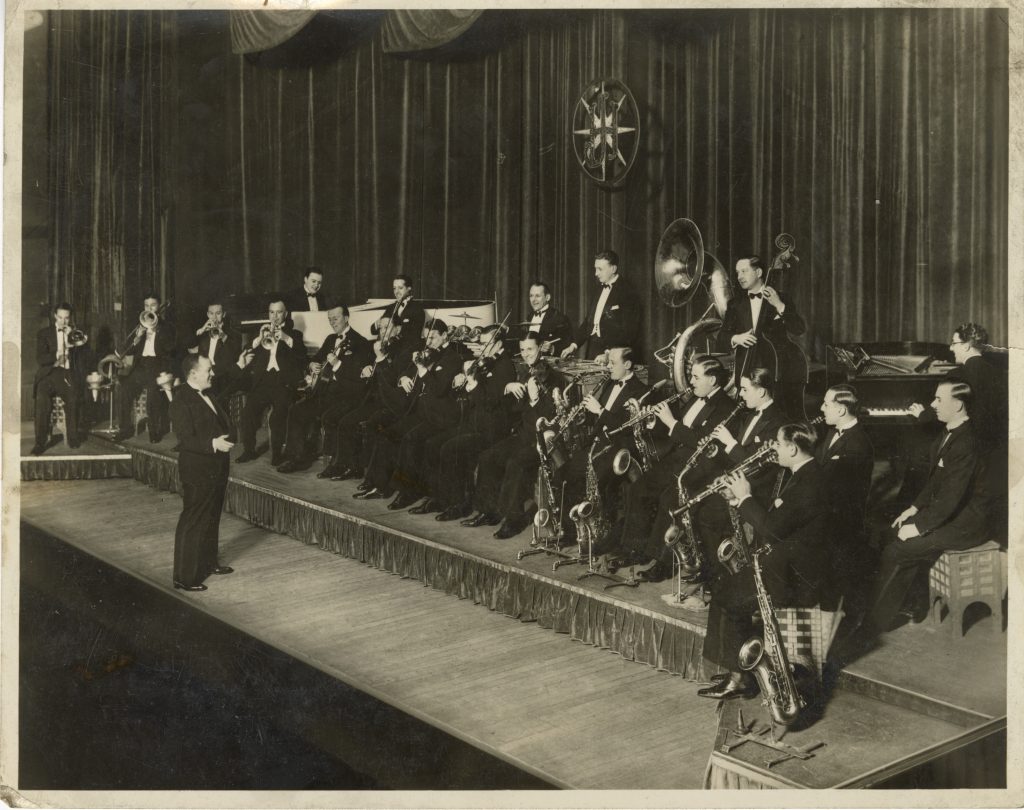
While on a trip to the US, Hylton secured a deal with the US Army to supply 300 hundred jukeboxes to troops based in the UK. With a team of investors, he set up Music Maker Ltd which employed Hawtins Ltd, an arcade machine manufacturer based in Blackpool, to build the first British jukebox, Music Maker MK-I. The jukeboxes were built with mechanisms imported from the US with case built from wood from the packing cases the parts were delivered in. The Music Marker MK-1 were on general sale at £285 each. Soon the MK-1 were replaced by the Music Maker MK-2, which has a fibre glass casing.
Jack Hylton soon moved on to other business ventures, and the rights to the Music Maker were sold to businessman Norman Ditchburn shortly afterwards.
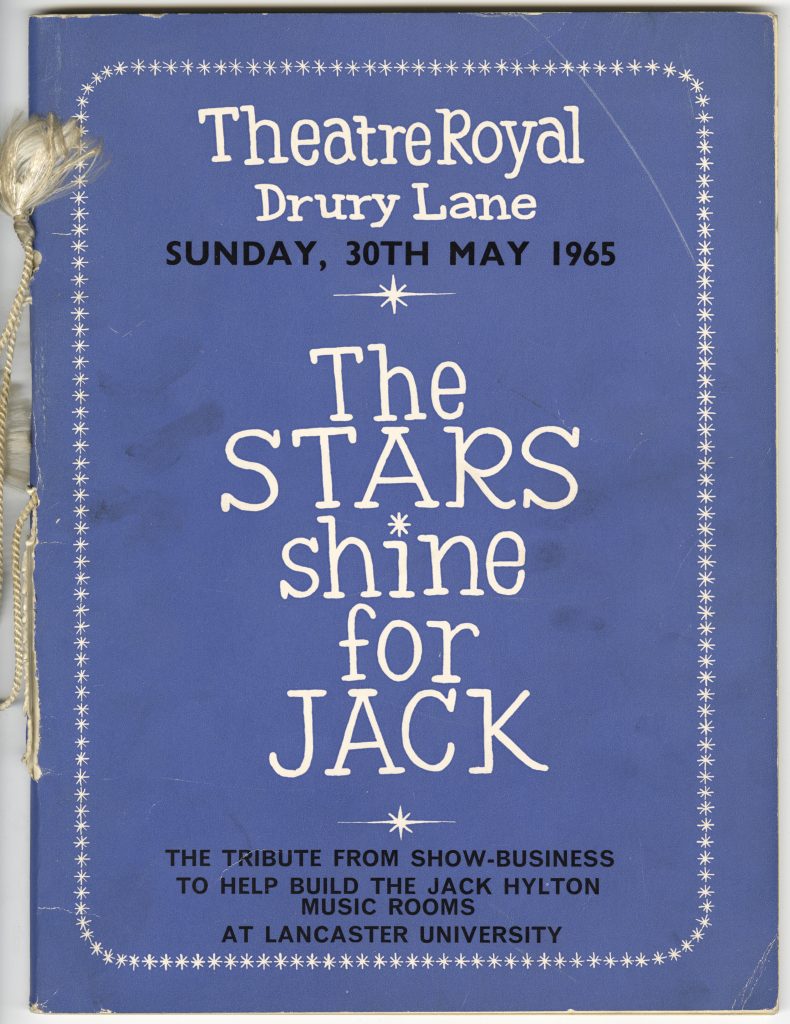
Further Information
Although Jack Hylton had no connection to Lancaster University during in his lifetime, a memorial concert after his death in 1965 raised funds to build a music room at the newly opened University. Later when his business records were discovered under the stage of the Adelphi Theatre in London, Lancaster University was chosen to be the permanent home of his archive. The papers are now held by the Special Collections and Archives at Lancaster University.
More information on Hylton and his career can be found on Peter Faint’s website about Jack Hylton.
Related Memories
- Adrian Horn Interview (research on the impact of the Jukebox)
- Jack Hylton Jnr. Interview (son of Jack Hylton talking about his father’s career and the jukebox).
Ditchburn Equipment Ltd
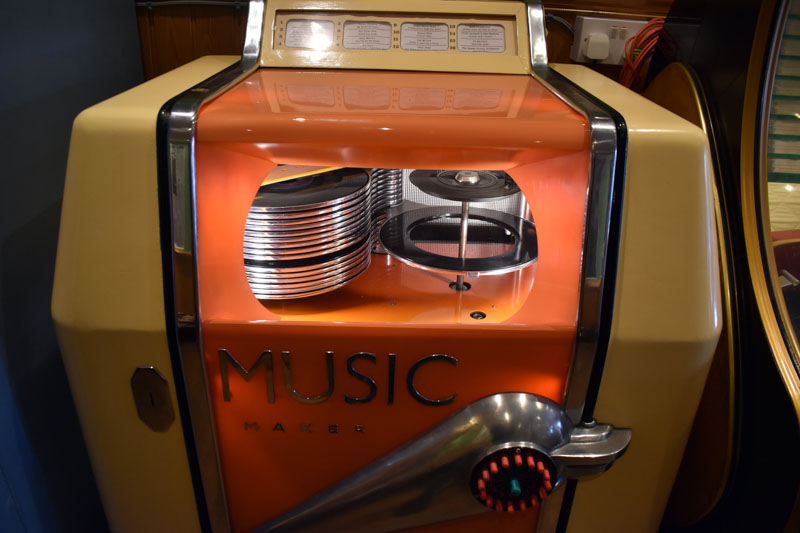
Norman Ditchburn (b.1908) began his career as a salesman at Rowe Brothers & Co Ltd, a builders and plumbers merchant based in Liverpool. He became one of the managing directors of the company, and after leaving Rowe Brothers in 1947, he was under an agreement not to start a new business which manufactured products already produced by his former employer. Looking for a new business opportunity, Ditchburn bought the rights to manufacture the Music Maker MK-2 and set up Ditchburn Equipment Ltd in the Hawtins’ factory in Blackpool. In 1952, the factory moved to Dock Road in Lytham St Anne’s.
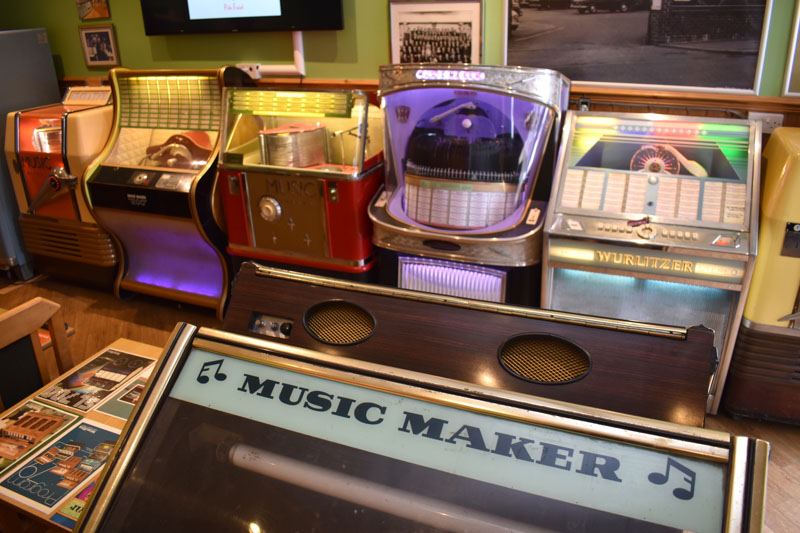
Rather than sell jukeboxes as Jack Hylton had tried to do, Ditchburn retained ownership of the jukeboxes he placed in business and took a portion of the takings each week. The business strategy worked as the venue owners did not have to buy the jukebox outright and the company earned enough to cover cost of building new machines, keep with the supply new records and make a profit. As well as producing jukeboxes, Ditchburns’ also applied the same practice to background music machines and vending machines.
Further Information
More information on the development of Ditchburn jukeboxes can be found on the Ditchburn Project website. Machines produced by Ditchburns can be seen in the Ditchburn Jukebox Museum and Coffee bar in Lytham St Annes which is due to open early 2025.
Related Memories
Memories related to Ditchburn Equipment Limited:
Blackpool memories
Blackpool began as a small hamlet on the Fylde coast. It began to develop in the early 19th century as richer families began to visit seaside towns for recreation and health. The town rapidly developed into a seaside resort after the opening of Blackpool North train station enabled easier access for workers from cotton towns.
By the mid-1950s tourist were flocking to Blackpool from across the country. The Golden Mile was central area for tourism and the theatres and other venues hosted the top acts of the day. Blackpool also had numerous Coffee Bars where teenagers would come together to socialise and listen to music on jukeboxes.
Related Memories
Available resources which refer to Blackpool
- Phil Baker
- Gill Howard
- Lynda Musgrave
Lytham St Annes Memories
Lytham can trace its history back to the Domesday book but remained a small settlement until the late 18th century when it became a seaside watering place. Like Blackpool, the introduction of railway led to a building boom in the town. St Annes-on-Sea (also known as St Annes) was a planned town which was built on open land at the western end of Lytham in the 1870s. The towns were initially administered separately, but were administered as a single town from 1922 under the name Lytham St Annes.
Related Memories
Available resources which refer to Lytham St Annes
Morecambe/Lancaster Memories
The seaside resort of Morecambe grew from the village of Poulton-le-Sands at base of the Morecambe Bay Estuary after the introduction of a Little North Western railway line in 1848. Town began to grow in the latter half of the 19th century in response to the increasing numbers of people visiting the resort. The town had a second period of growth in the 1930s. with the opening of hotels and other buildings in art deco style. Morecambe was still a popular resort in the 1950s/1960s, but popularity began to wane in the 1970s.
Across the river Lune, Lancaster is a city which dates back to Roman Britain. The importance of the city rose in the late 17th century as town became on the the busiest ports in the UK, benefiting from trade with the Caribbean and North America.
Related Memories
- Christine Stebbings
- 1st interview (to be added)
- 2nd Interview
- David Scott
Memories from elsewhere
Some of the participants also talked about the memories being teenagers in other areas of the UK. We also interviewed some participants who grew up outside of the towns covered by the project as they were either currently based in the local area or could provide context to the project.
